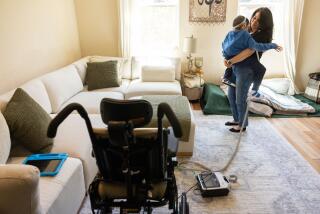California palliative-care hospital units increase -- except in L.A.
- Share via
More palliative care services are available in California compared with five years ago, according to a new survey from the California HealthCare Foundation. The exception, however, is in Los Angeles.
Palliative care is focused on providing pain relief and comfort at the end of life with an emphasis on following the patient’s wishes. The data, released Tuesday, examine trends in palliative care from 2007 through 2011.
The study indicated that adult palliative-care services increased statewide by 24%, while pediatric palliative care increased by 128%. Many palliative-care units are small, however.
Los Angeles actually had a small decrease in the number of hospital-based palliative care units over the five-year period, the study said.
The bottom line is that many people who wish to have palliative care at the end of life still don’t get it. But consumers need to make their wishes known and aren’t doing a great job of it, the survey found. In a poll of California residents, 70% said they would like to die at home, but only 32% do so. Moreover, 82% said it’s important to put their end-of-life wishes in writing, but fewer than 25% have done so. More than half said they have not talked to a loved one about the kind of care they want at the end of life.
Californians have some resources at hand to help with end-of-life healthcare planning. A consumer guide for developing an advanced directive is available from the American Bar Assn. In addition, the California HealthCare Foundation promotes the use of a form called the “physician orders for life-sustaining treatment.” Printed on bright pink paper, it allows individuals to specify the type of treatment they want. Signed by doctor and patient, the form carries the power of a physician order and complements the advanced directive -- although it does not replace an advanced directive.
“People consistently stress they want to die comfortably and without pain. If so, the single most important thing they can do is to talk to their loved ones and physician, and put their wishes in writing, something most Californians aren’t doing,” Dr. Mark D. Smith, president and chief executive of the healthcare foundation said in a news release.
Both state and national end-of-life healthcare conferences are scheduled to take place later this week in San Diego. For additional resources see: www.chcf.org/endoflifecare.
twitter.com/LATShariRoan






